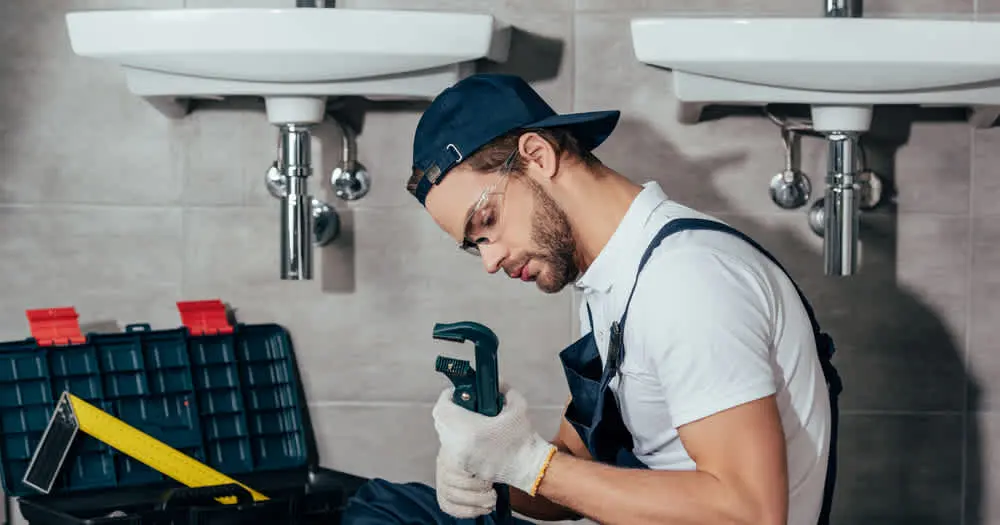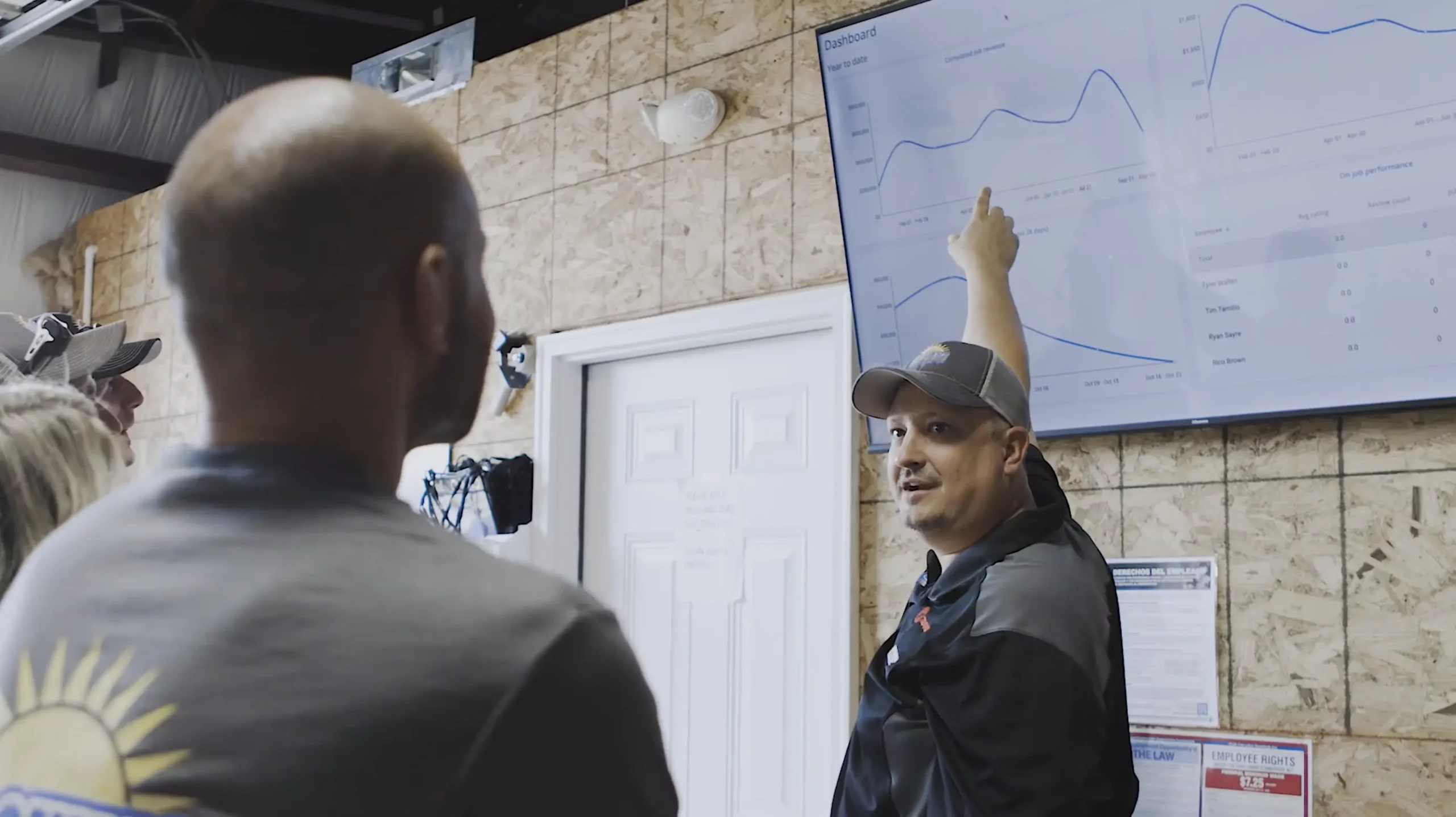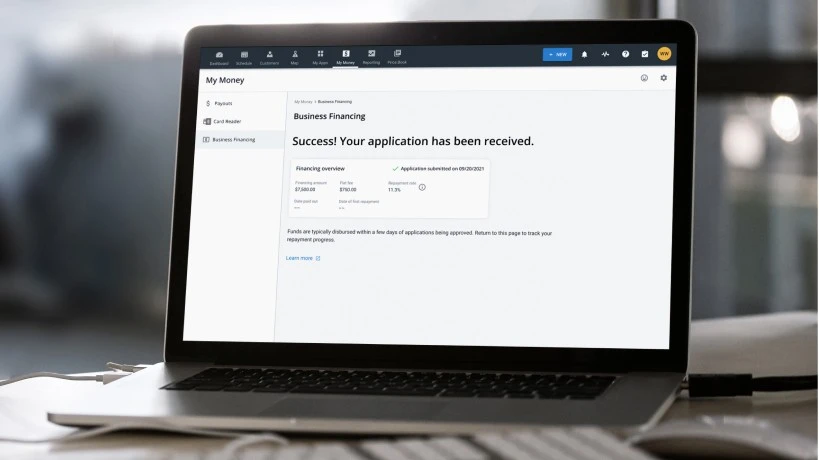
Imagine a busy day where nothing seems to be going right. You can’t find a pair of matching shoes. You’re late getting the kids off to school. And then, all of a sudden, your child calls out from the bathroom that the toilet is spraying water everywhere. You sigh and haul yourself to the bathroom but have no idea what to do.
Thankfully, you have your local plumber’s business card hanging on the refrigerator and you head back to the kitchen, place a call, get some initial instructions, and the promise of their arrival within the hour. These scenarios happen all the time. Leaky toilets and faucets. Backed-up pipes. Clogged drains. Low water pressure. And when this happens, your best bet is to call a plumber.
It should come as no surprise, then, that the plumbing industry is quite large—with a value of $126.4 billion as of June 2024 in the U.S. alone. And for those who want to get in on the value of that prize, the market is always open.
What You Need to Start a Successful Plumbing Business
In our above scenario, we talked about a homeowner who was baffled by what to do in the event of their leaking toilet. But what about you? Do you have the skills required to be successful in the plumbing industry? Do you like to come to the rescue when a homeowner has an emergency? Are you open to growing your skills?
If you answered yes to the questions above, then you might be a great candidate to join the plumbing business. If you have an entrepreneurial spirit as well, then starting a plumbing business might be quite a lucrative opportunity for you.
In the sections to follow, we’ll talk you through everything you need to know on how to start a plumbing business. Are you ready to get started? Let’s do this!
Step 1: Research Your Local Plumbing Market
Though the plumbing industry is large, and there are always plumbing services in demand, the best place to start is by researching your local plumbing market. To do this, identify your target customers. Are you looking to serve homeowners, businesses, or both? Homeowners often need assistance with emergencies like leaks or clogs, while businesses may require maintenance agreements or specialized installations.
Next, closely analyze your competitors. Research what services other plumbers in your area are offering. Are they focused on basic repairs, or do they provide specialized services such as trenchless sewer repair or water filtration system installation? Look for gaps in the market where your business can offer something different, whether it’s quicker response times, better customer service, or expertise in a specific area.
Assessing Customer Pain Points
Understanding the problems potential customers face is a necessary part of setting up your plumbing business. Typical issues may include slow response times, incomplete repairs, or limited service availability.
Pay attention to reviews and social media to spot recurring frustrations with local plumbers. This research can help you shape your services to stand out from the crowd, whether by offering emergency plumbing, water heater installations, or comprehensive drain cleaning. Addressing these gaps can position your business as a trusted and reliable choice in your community right off the bat.
Step 2: Secure the Right Plumbing Licenses
The plumbing industry is highly regulated. This means that there are codes and standards in place to keep people safe and protect our water supply, prevent drainage issues, prevent backflow, and prioritize using efficient fixtures.
For those wondering how to start a plumbing business, this means obtaining specific licenses and permits before operating. Research the requirements in your area, as these may include a business license, contractor license, or permits for specialized services like sewer work or gas line installation. Consider pursuing additional certifications, such as backflow prevention testing or gas fitting, to expand your service offerings and build credibility.
Do I Need a License to Start a Plumbing Business?
Yes, licensing is a legal requirement in most states to operate a plumbing business. Without proper licensing, you risk hefty fines and the possibility of being shut down, which can derail your plans before they even get off the ground. Fines in some states are as high as $10,000, and you will often be served with a cease-and-desist order or a stop-work order. It may also result in an investigation by your state.
Plumbing licensing helps you meet local regulations and standards, so you can work on projects safely and legally. It also reassures your customers that your work complies with industry expectations. Know that many customers will check that you are licensed before they allow you to conduct work in their home or place of business. So make sure this information is readily available and prominently displayed on your website.
Step 3: Craft a Solid Business Plan
When setting up your plumbing business, you will want to develop a well-written business plan. This document contains all of the necessary business elements for your plumbing business—your budget, projected revenue, how you will sell your products and services, how you will staff your business, your plans for marketing and advertising, etc.
A well-crafted business plan is not just a roadmap for your plumbing business—it’s often a requirement if you’re applying for a small business loan. Include details about your services, whether you’ll focus on residential, commercial, or both. Clearly define your unique selling point (USP)—what sets you apart from competitors. Need help getting started? Download our Plumbing Business Plan template, courtesy of Housecall Pro, to guide you through the process step by step.
Step 4: Choose the Right Business Structure
As you have probably guessed at this point, you can’t simply say that you’re going to be a plumber and start heading off to homes and businesses offering work. There are many steps involved to make sure you have the proper protections in place that can also reassure potential customers that you are who you say you are, and are operating a legal business.
Part of this process involves determining your business structure. The choice you make affects liability, taxation, and management responsibilities. Here are the common business structures to consider:
- Sole Proprietorship: Easy to set up, but personal assets are at risk if your business incurs debts or liabilities.
- Limited Liability Company (LLC): Offers liability protection for personal assets and flexible tax options.
- Corporation: Provides robust liability protection but involves more complex tax and administrative requirements.
Register Your New Plumbing Business
To register your business, start by choosing a unique and memorable name that reflects your services. Obtain a Federal Employer Identification Number (EIN) for tax purposes, and register with your state and local government for the required licenses and permits. Having all your paperwork in order is key to launching smoothly and building trust with clients.
What’s the Best Business Structure for a Plumbing Company?
The best business structure for your plumbing business depends on your goals and resources. Many plumbers start with a sole proprietorship for simplicity or choose an LLC to separate personal and business liabilities. Consulting a legal professional can help you select the structure that best fits your long-term plans and protects your interests.
Step 5: Secure Startup Financing
It costs money to start a new business. And in the plumbing space, you’ll need to make some investments in equipment to make sure you are ready for whatever comes your way when you head to a customer location. But, before you start purchasing equipment and identifying how much money you’ll need, you’ll need to decide where to get the money, how to keep track of it, and keep it protected.
You have several funding options to explore, such as small business loans, investors, or dipping into personal savings. Each comes with pros and cons, so be sure to consider your choices carefully. Additionally, you may want to hire a professional accountant to help with tax compliance and set up financial systems for tracking income, expenses, and cash flow.
How Much Money Do I Need to Start a Plumbing Business?
The average cost to start a plumbing business, based on our experience, ranges from $6,650 to $8,555+, depending on your specific needs. Here’s a rounded breakdown:
- Business license and registration: $80–$420
- Plumbing business software: $420+
- Insurance: $630–$2,100/year
- Branded uniform and work boots: $105–$210
- Tools and inventory: $5,250+
- DIY website and business cards: $160
Additional costs may include plumbing education and certification ($5,250–$10,500+) or a work truck ($3,150–$31,500), which can significantly increase your initial investment.
Step 6: Invest in High-Quality Tools and Equipment
Now that you know how much it will cost to get started and have a plan for finances in place, it’s time to think about investing in the right tools and equipment. As we mentioned earlier, you can anticipate that your upfront expenses will be about $5,250 or more. The fact is that costs can vary greatly depending on the type of tools you get, the brand you choose, etc.
Here are just some of the tools that you might want to research and plan to purchase as you get started.
- Work Vehicle: A reliable van or truck to transport tools and equipment.
- Pipe Wrenches and Plungers: Essential for most plumbing jobs.
- Augers and Drain Snakes: For clearing tough clogs.
- Soldering Equipment: Necessary for pipe repairs and installations.
- Safety Gear: Gloves, goggles, and masks to meet OSHA standards.
- Advanced Tools: Inspection cameras, leak detection devices, and hydrojetting systems for specialized work.
- Management Software: Plumbing management software simplifies project scheduling and cost estimation to keep your business organized.
Get In Touch: 858-842-5746
Let us earn your trust
On average, Pros increase monthly revenue generated through Housecall Pro by 50% after their first year.
See plan options and feature breakdown on our pricing page.
Step 7: Protect Your Business with Insurance
Unfortunately, the plumbing industry is in great demand, but it isn’t free from risks. Plumbers are subject to serious injuries based on the nature of their business. According to the Bureau of Industry and Security (BIS), plumbers face 5.7 fatalities for every 100,000 FTE workers each year.
This means you need to invest in safety equipment as well as insurance. Key policies to consider include:
- General Liability Insurance: Protects against claims of property damage or injuries to third parties. On average, this costs around $115 per month or $1,378 annually, according to Insureon.
- Workers’ Compensation Insurance: Covers medical expenses and lost wages for employees injured on the job, costing an average of $195 per month or $2,337 annually.
- Commercial Auto Insurance: A must for vehicles used to transport tools and equipment.
- Business Owner’s Policy (BOP): Combines liability and property coverage for about $166 per month or $1,992 annually.
Step 8: Nail Down Your Pricing Strategy
Remember all that market research you did up front when you were working on that business plan? That information can help you to determine the right pricing strategy for your plumbing services.
Consider different strategies like flat rates for common jobs, hourly rates for custom work, or pricing based on the value provided, such as expertise or quick turnaround. Research local rates to remain competitive without jeopardizing your profit. Know that about 82% of businesses fail due to cash flow, so make sure you do your due diligence here.
Use this formula to calculate costs:
Labor + Materials + Overhead + Desired Profit Margin = Your Rate.
Need help organizing your pricing? Download our Plumbing Flat Rate Pricing template to simplify the process and get started on the right track.
Consider Offering Package Deals
Want a pro tip from some of the best plumbers in the business? Bundling services can appeal to customers while increasing your revenue. For example, offer a water heater installation and maintenance package or a drain cleaning bundle for households with frequent plumbing needs. Package deals not only provide added value but also help build long-term customer relationships.
Step 9: Create a Marketing Strategy to Get Your First Clients
While word of mouth can go a long way in helping you build your business, you need to try to get those first customers. This is where your marketing and advertising strategy comes into play. Start by developing a strong brand identity, including a memorable logo and consistent branding across all platforms. Make sure this aligns with the business name that you selected earlier in the process.
This creates a professional image that helps potential customers recognize and trust your business.
Additional steps to kickstart your marketing and find the best leads:
- Create a Professional Website: Include details about your services, contact information, and an option to book appointments online.
- Claim Your Google Business Profile: Your Google Business Profile is so important to help your business appear in local search results and maps.
- Leverage Social Media: Set up profiles on platforms like Facebook and Instagram to engage with potential customers and share helpful tips. Consider making videos of common plumbing issues with DIY tips to help build trust with customers looking for a plumber.
- Network Locally: Connect with contractors, home builders, and real estate agents who can refer your services.
- Offer Discounts or Promotions: Attract first-time clients with introductory rates or special packages.
Step 10: Hire the Right Team
Though you may want to be a one-person team, the chances are that you will want to expand your operation sooner than you might think. Whether it is a receptionist or back-office manager handling all the day-to-day operations while you are out in the field, you want to look for the best candidates to do the job. After all, your employees are an extension of your brand and can help you build credibility.
Here are some tips to guide your hiring process:
- Post Job Listings in Strategic Locations: Advertise on job boards like Indeed, trade school job boards, local community boards, or industry-specific websites.
- Leverage Word of Mouth: Ask for referrals from other plumbers, suppliers, or professional networks.
- Prepare for Interviews: Craft thoughtful questions to assess technical skills, customer service mindset, and reliability. Avoid asking questions about age, religion, marital status, or other prohibited topics.
- Conduct Skills Tests: Include a hands-on assessment to evaluate a candidate’s problem-solving abilities in common plumbing scenarios.
- Look Beyond Experience: Focus on attitude, work ethic, and a willingness to learn, especially for entry-level positions.
- Verify Licenses and Certifications: Confirm that candidates have the proper qualifications and training.
- Check References: Speak to previous employers to get insight into the candidate’s reliability and work quality.
Simplify Business Operations With Plumbing Service Software
If you offer great customer service, are highly skilled at troubleshooting and solving common plumbing problems, and are dedicated to a job well done, your business will grow. And as it grows, some of those manual back-office efforts may no longer be quite as effective. This is where using plumbing contractor software can make all the difference.
Software and technology can save you time and money and can help protect the environment because it requires less ink and paper. Here’s what to look for in the best plumbing software for your new plumbing company.
- Mobile App: People use their mobile devices for everything these days. And you probably do, too. A field service mobile app makes it easy to access customer information, job details, and schedules while on the go.
- CRM (Customer Relationship Management): Keep track of client interactions, preferences, and contact details in one place.
- Scheduling & Dispatching: Organize jobs and assign them to team members.
- Estimates: Create and send professional cost estimates directly to clients.
- Online Booking: Offer customers the convenience of booking appointments through your website or app.
- Invoicing: Generate and send invoices quickly to stay on top of payments.
- Lead Pipeline: Track potential jobs and follow up with prospective clients.
- Sales Proposals: Send detailed project proposals to win larger contracts.
- Service Plans: Manage recurring maintenance agreements and customer subscriptions.
- Reporting: Analyze business performance, track revenue, and identify growth opportunities.
Next Steps in Starting Your Plumbing Venture
If you are asking yourself how to start a successful plumbing business, we’re confident that you’ll have found all the answers you need to your top questions in this article. And remember that one of the first steps to starting a plumbing business is to look at technology and software that can make your business more efficient and more effective throughout the process.
Sign up for Housecall Pro’s free 14-day trial today and see how we can help you scale and grow your business from the get-go.






